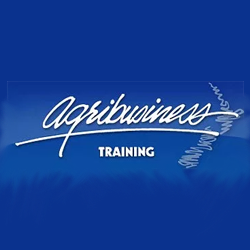
Enrolment Assessment Tool
Status
Completed: 5 December 2011
Project Details
A project, completed in 2011, to develop and trial a quick diagnostic placement tool that Agriculture ITO Training Advisors can use on-farm to assess the most appropriate qualification for each migrant dairy farm worker who is undertaking formal industry training. A collaboration of English Language Partners, Agribusiness Training Ltd and Agriculture Industry Training Organisation.
Aims:
The main aims of the project were to:
- develop a viable diagnostic enrolment tool that is low-tech, quick and simple to use
- determine the suitable qualification level for migrant dairy farm workers who are undertaking formal industry training.
Methodology:
The project used a mixed methods approach involving:
- a review of the literature
- trialling the Tool with migrant dairy farm workers in Southland
- videoconferences to discuss progress and gain feedback from Training Advisors
- collecting feedback from Agribusiness Training’s Southland tutors at the end of the trial
- collecting unit standard completion data for both the trial and control groups, which measured how many assessments were successfully completed out of those given to each student.
Team

Dorothy Thwaite
Project Leader
English Language Partners
Charlotte Heather
Agribusiness TrainingStatus
Funding
$5,035.00 (excl GST)
Key Findings
The key findings from the project included:
- Those with direct responsibility for NESB migrants in an industry must want to change how they are working with them, otherwise the extra activity required to trial new options will not be completed. The enthusiasm of other involved parties cannot compensate for this.
- The final version of the Enrolment Assessment Tool takes the desired 10-15 minutes and is usable by assessors who are neither education nor ESOL experts.
- Preparation of Training Advisors to use the Tool needs to give them an understanding of how it works, how to use it, and that it is not a comprehensive test of vocabulary.
- Other barriers or drivers can affect the use of the Tool and the application of its results. Immigration NZ’s level 4 qualification benchmark for New Zealand residence is a strong driver which impacts on NESB workers’ attitude towards different levels of training, operating outside the expected factors of industry and language knowledge.
- The Enrolment Assessment Tool provides a framework beyond “gut feeling” for considering the suitability of NESB migrant workers for different levels of training.
- Challenges with trialling the Enrolment Assessment Tool sufficiently mean that only tentative conclusions about its accuracy and usefulness could be reached in this project. This does not detract from the potential usefulness of the Tool for agricultural industry training, but further trialling is needed to validate and refine these conclusions.
- The Tool reliably indicated when a trainee should be enrolled in Level 2 or Level 4 training. Those enrolled following this recommendation were succeeding in their training.
- The Tool needs more trialling and possibly refining to demonstrate similar reliability for level 3 training.
- English language ability is not the only factor determining success in the classroom. The inability of some cultures to ask questions hinders their understanding and progress, compared with those who do ask questions in spite of having limited English skills.
Key Recommendations
The key recommendations from the project included:
Further trialling of the Tool | While the Enrolment Assessment Tool appears to give a useful indication of suitable training for a NESB trainee, this was not demonstrated sufficiently in this project. To do so, AgITO Training Advisors would need to continue trialling the Tool. This would enable linking back the eventual study success of trainees to how they performed with the Enrolment Assessment Tool. The accuracy of the Tool’s recommendation and its impact on trainees’ success may also increase with Training Advisors’ growing skill and confidence to translate their assessment observations into a training choice.
Wider use of the Tool by AgITO | If the AgITO decides to further trial or adopt this Tool, they will need to resolve how to accommodate it within farm visits along with the other tasks to be completed. This discussion would need to include managing dynamics when there are several NESB workers to be assessed, and the increased discomfort that can result from the farmer being present during the assessment.
Training for Training Advisors | Training for Training Advisors needs to ensure they understand how the Enrolment Assessment Tool has been constructed and how each section contributes to a picture of someone’s English language skills. They also need to be confident to use the Tool quickly and lightly.
Tool can be adapted for farmers to identify English skills |The Enrolment Assessment Tool could easily be adapted for farmers to identify the English language skills of their NESB staff. Support and language development suggestions could be part of the training package available to farmers using such a Tool.
Tool can be adapted for use in other industries | The Enrolment Assessment Tool could be adapted for use by other industries which have significant numbers of NESB employees involved in training, replacing the vocabulary in it with the equivalent type of words relevant to that industry.
A research report prepared by Charlotte Heather and Dorothy Thwaite.
(PDF, 365 KB, 25-pages).
- 3 December 2011